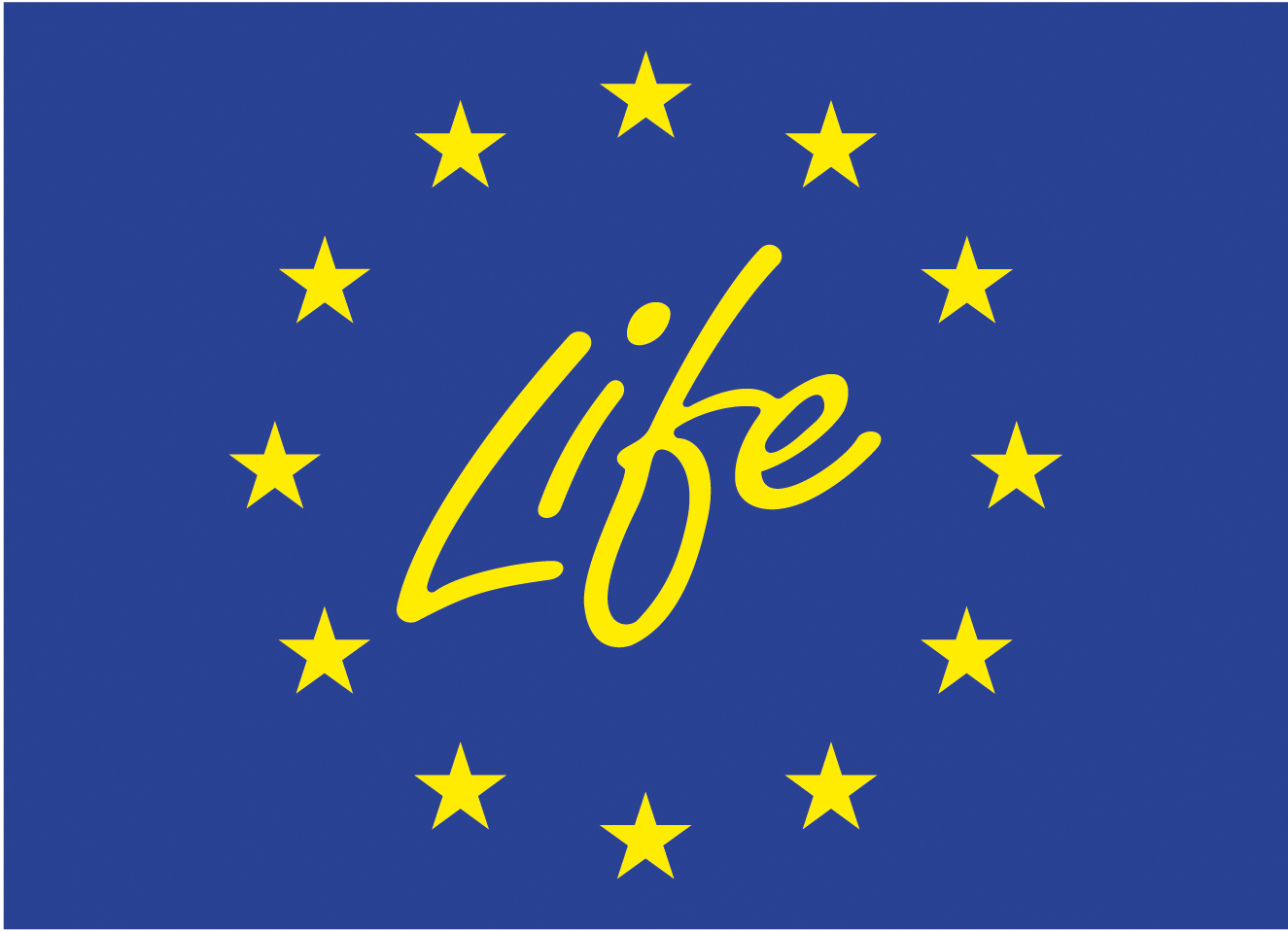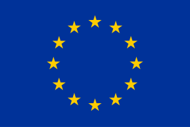
Plant protection
Plant protection tools and strategies working with biodiversity
Plant health is essential for the production of crops and for the products we harvest. The health of our crops can be threatened by pests, diseases and weeds, and by factors such as drought or floods. Organic farmers achieve good yields and provide high-quality products while being gentle on the environment, without using synthetic chemical pesticides, and no herbicides at all. Instead, they rely on other strategies and tools. This is an active contribution to preserving insects, birds, and wildlife in farming landscapes.

Organic farming’s approach to plant protection is mainly based on the ecosystem services provided by well-maintained and functional biodiversity, as well as on preventive measures. Organic farming’s unique approach to plant protection reduces pesticide use considerably compared to conventional systems. Pest and weed management on organic farms rely primarily on natural enemies, the choice of species and varieties, crop rotation, cultivation techniques and various physical plant protection methods. Only when plants cannot be protected by these means or where there is an established threat to a crop, certain natural products and substances may be used. In general, only 10% of the organic agricultural land requires the use of natural substances in addition to the other measures mentioned above. The use of plant protection products in organic farming is also considerably restricted by the fact that only a limited number of substances is at all approved for use on organic farms (this is laid down in the Organic Regulation 2018/848). This is in stark contrast to conventional farms, where farmers use a vast array of plant protection products, including insecticides, herbicides and fungicides. Organic farming aims to be as little dependent as possible on buying external inputs such as pesticides. Since the use of synthetic pesticides and of any herbicides is prohibited, organic agriculture prevents the introduction of new and alien substances into ecosystems and leaves more space for nature on farms.
Organic farming is one of the main levers to reduce the EU farming sector’s high dependence on synthetic pesticides. Synthetic pesticides are problematic because they pollute our soils, water and air, and leave residues on our food. Synthetic pesticides also negatively affect farmers and farm workers’ health and working conditions. Farming systems that rely heavily on the use of synthetic pesticides or other external inputs can cause economic dependences for farmers, who will need to buy these external inputs year after year.
Synthetic pesticides, used on conventional farms, can also negatively affect organic farms: pesticides are a main cause of biodiversity loss. However, organic farms depend on biodiversity – on the presence of beneficial insects, birds and other organisms that help keeping pests under control. Pesticides used on conventional farms, nearby or further away, can contaminate the fields and the products on organic farms due to pesticide drift in the air or polluted irrigation water, amongst others.
Concerns over synthetic pesticides have been growing among citizens and policymakers. In its Farm to Fork and Biodiversity strategies, the European Commission sets ambitious targets to:
- Reduce the overall use and risk of chemical pesticides by 50% by 2030,
- Reduce the use of more hazardous pesticides by 50% by 2030, and
- Achieve a share of 25 % of agricultural land for organic farming by 2030.
Organic farming is part of the solution to reach the targets. It ensures the health of soil, plant, animal, human and planet, by creating resilient agricultural systems – significantly lower in use of and dependence on off-farm inputs. To achieve this, organic farming:
- Protects and enhances biodiversity within the production area,
- Manages plant protection through preventive and indirect measures, and
- Bans synthetic pesticides – they must not be used on organic farms.
IFOAM Organics Europe…
- Supports the future development of organic plant health in EU regulation and policy
- Asks for better regulation that expedites the approval of natural substances and of biocontrol methods appropriate for organic farming
- Supported the EU Commission’s proposal on the Sustainable Use of Plant Protection Products Regulation (SUR) to ensure the EU’s 50% pesticide use and risk reduction targets are met by 2030 (note: The EU Commission has withdrawn the SUR regulation proposal in 2024). Read more in our position paper;
- Concluded the project Developing Organic: Pesticide use and contamination to agree on a common approach of the organic sector on how to deal with findings of pesticide residues, before the EU Commission issues its report on national implementation of EU rules on residue findings, and a possible proposal on further harmonisation. More about the overall conclusions can be read in our position paper and a follow-up briefing paper.
- Is involved in IPMWorks, a Horizon 2020 project aiming at building a European farm network to demonstrate integrated pest management (IPM) strategies and promote the adoption of such strategies via knowledge exchange, and in which IFOAM Organic Europe’s role is to coordinate the network of involved organic demonstration farms.
- Was part of the RELACS project that developed and facilitated tools and technologies to phase out dependency on and use of inputs considered contentious in organic farming systems;
- Participates in the European Commission Directorate General on Health and Food Safety’s (DG SANTE) advisory group on food chain and animal and plant health;
- Is part of the European Food Safety Authority (EFSA) ‘stakeholders’ engagement’ process, including the annual EFSA’s Roundtable with NGOs;
- Collects messages, arguments, and visuals on organic’s approach to plant health for its members (contact [email protected] for information about membership).
Check out our video explaining the organic approach to plant health care as well as our recommendations for the Sustainable Use of Pesticides Regulation and for changing the Harmonized Risk indicator (HRI-1).
Three cuts are also available: organic approach to plant health care / SUR / HRI-1.
Legislative background
- EU Regulation 2018/848 on organic production and labelling of organic products: the EU Organic Regulation covers rules for organic plant production and plant protection products. The natural substances authorized in organic farming are listed in the EU Organic Regulation 2021/1165;
- EU regulation 1107/2009 on the placing of plant protection products on the market: This regulation lays down rules for the authorisation of plant protection products in commercial form and for their placing on the market, use and control, and for the approval of active substances;
- Directive 2009/128/EC establishes a framework for Community action to achieve the sustainable use of pesticides (Sustainable Use Directive, SUD). The SUD creates a framework for sustainable pesticides use by promoting integrated pest management and alternatives to the use of pesticides. In 2022, the European Commission proposed a new text revising this Directive into a Sustainable Use of Plant Protection Products Regulation (SUR). The SUR was supposed to establish new measures and objectives to achieve the Farm to Fork and Biodiversity Strategies’ EU targets of 50% reduction of pesticide use and risk of chemical pesticides by 2030, as well as the 50% reduction of more hazardous pesticides in the EU by 2030. The European Commission has withdrawn the SUR proposal at the beginning of 2024;
- EU Regulation (EU) 2022/2379 on Statistics on Agricultural Inputs and Outputs (SAIO): The SAIO sets rules on EU data collection on agricultural production, crop products, agricultural inputs, and prices. Data about pesticides use will be collected and published annually (until now, only data on pesticides sales were collected). The first set of data will be collected in 2026 and disseminated in 2028;
- EU Regulation 396/2005 stipulates maximum residue levels in or on food and feed of plant and animal origin.
IFOAM Organics Europe believes that many aspects of organic plant health are not adequately addressed in the current EU policy and regulatory framework. Immediate and long-term actions in EU regulation and policy must include:
- Registration processes in horizontal legislation further adapted to natural substances and biocontrol methods appropriate for organic farming, reflecting their special importance for plant health care in organic farming;
- A fast-track procedure for inclusion of registered substances in line with the organic principles and necessary for organic plant health;
- Use of an indicator which properly measures pesticide use and risk in Europe (read more in our joint press release with Global2000, Pesticides Action Network and ECI Save Bees and Farmers);
- Prioritisation of organic farming in National Action Plans implemented under the Sustainable Pesticide Use Directive;
- Prioritisation of research and knowledge transfer for organic plant health to support greater agroecosystem resilience;
- The introduction of a green value added tax (VAT) on pesticides and synthetic fertilisers with revenues used to fund applied research development on organic and agroecological approaches.
Read our position papers on Plant Health Care in Organic Farming and the Sustainable Use of Pesticides Regulation (SUR) for more details.
RELACS – Alternatives for inputs in organic farming
The ‘Replacement of Contentious Inputs in Organic Farming Systems’ (RELACS) project looked into safe tools and technologies to phase out inputs considered contentious in organic farming. Two of the project’s work packages looked into alternatives for copper and mineral oil. The RELACS project released relevant policy roadmaps and technical resources.
Developing Organic: Pesticide use and contamination
‘Developing Organic’ is the term we use for our work on specific issues important for the sector. Our first and ongoing Developing Organic project is called “Pesticide use and contamination: Ensuring a favourable environment for organic operators through EU legislative frameworks”. After a call to interested parties to join and support the initiative, the project officially started in November 2020 and was concluded in December 2022. Its main objective was to agree on a common approach of the organic sector on how to deal with findings of pesticide residues to develop a fair and harmonised legislative framework for organic farmers, processors, traders, certifiers in the EU and beyond. To serve this objective, under the project we delivered studies, reports and a policy brief, and the main conclusions were summarised in a position paper published in the summer of 2023, followed by a follow-up briefing paper. The organic sector wants to remain proactive on this key issue, as the European Commission will present a report assessing the national rules applicable in case of residue findings by 31 December 2024. This might be accompanied by a legislative proposal for further harmonisation in all Member States and Third Countries. The project was made possible by 17 sponsors and 1 supporter: find out who they are and why they decided to take part!
IPMWorks
The Horizon 2020 project IPMWORKS builds a European farm network to demonstrate integrated pest management (IPM) strategies and to promote the adoption of such strategies via knowledge exchange. IPMWORKS coordinates existing networks promoting IPM and launched new hubs of farms in regions or sectors where IPM pioneers were not yet engaged in a relevant network. IFOAM Organic Europe’s role is to coordinate the network of organic demonstration farms that are involved in the project.
InterCropValuES

InterCropValuES aims to exploit the benefits of intercropping. It will create a better understanding of the functioning of intercropping systems and make a detailed analysis of lock-ins and levers for intercropping at the value chain level. It will identify credible solutions that can be adopted by farmers and value chain actors.
Organic fruit growers often suffer economic losses due to insect damages. Functional agrobiodiversity (FAB) can reduce pest damage and pesticide use in organic apple orchards. One exemplary measure is the use of flower strips, an easy, attractive, fast technique to improve functional biodiversity in cropping systems by maintaining beneficial insects in the crop. The EcoOrchard project (2014-2018) has been launched to improve our understanding of flower strips behaviour in European orchards, and their effect on apple pests. Read more about this initiative on euorganic2030.bio.
Organic farm ‘Mrowisko’ specialises in organic vegetable production. The farm does not keep animals, but produces compost, vegetable broth and plant extracts. The effects are achieved mainly by properly constructed crop rotation, composting, organic fertilizers allowed by Fertilizer Institute in Puławy and manure purchased at organic farms. Proper composition of neighbouring plants protects the cultivation from pest and diseases. For more information, visit euorganic2030.bio
We are 1.1 million European citizens, demanding an end to pesticides. We want healthy food and sustainable agriculture. We ask for support for farmers to work with nature. Now is time for change! Your support is essential.
The EU institutions will vote soon on legal proposals to reduce pesticides and restore nature. At the same time there is a proposal to allow 10 more years of the most sold weedkiller glyphosate (Roundup). Tell the politicians to put citizens and farmers health and biodiversity above interests of the chemical industry.
The below tool makes it easy to write ministers and members of the EU Parliament from your country. You can use the suggested text or add your own words and send the message. Your voice counts, for a healthy future for us, our children, and grandchildren.

The Federal Ministry of Germany for the Environment, Nature Conservation and Nuclear Safety, via the EURENI initiative, with the project “Protect the environment from pesticides & fertilisers pollution with positive communication around organic farming towards wider adoption in Europe (OF2StopPollution)“.

The work of IFOAM Organics Europe on this topic is co-financed by the LIFE programme of the European Union, under the Climate, Infrastructure and Environment Executive Agency (CINEA). This page only reflects the views of the authors and its sole responsibility lies with IFOAM Organics Europe. The CINEA is not responsible for any use that may be made of the information provided.



